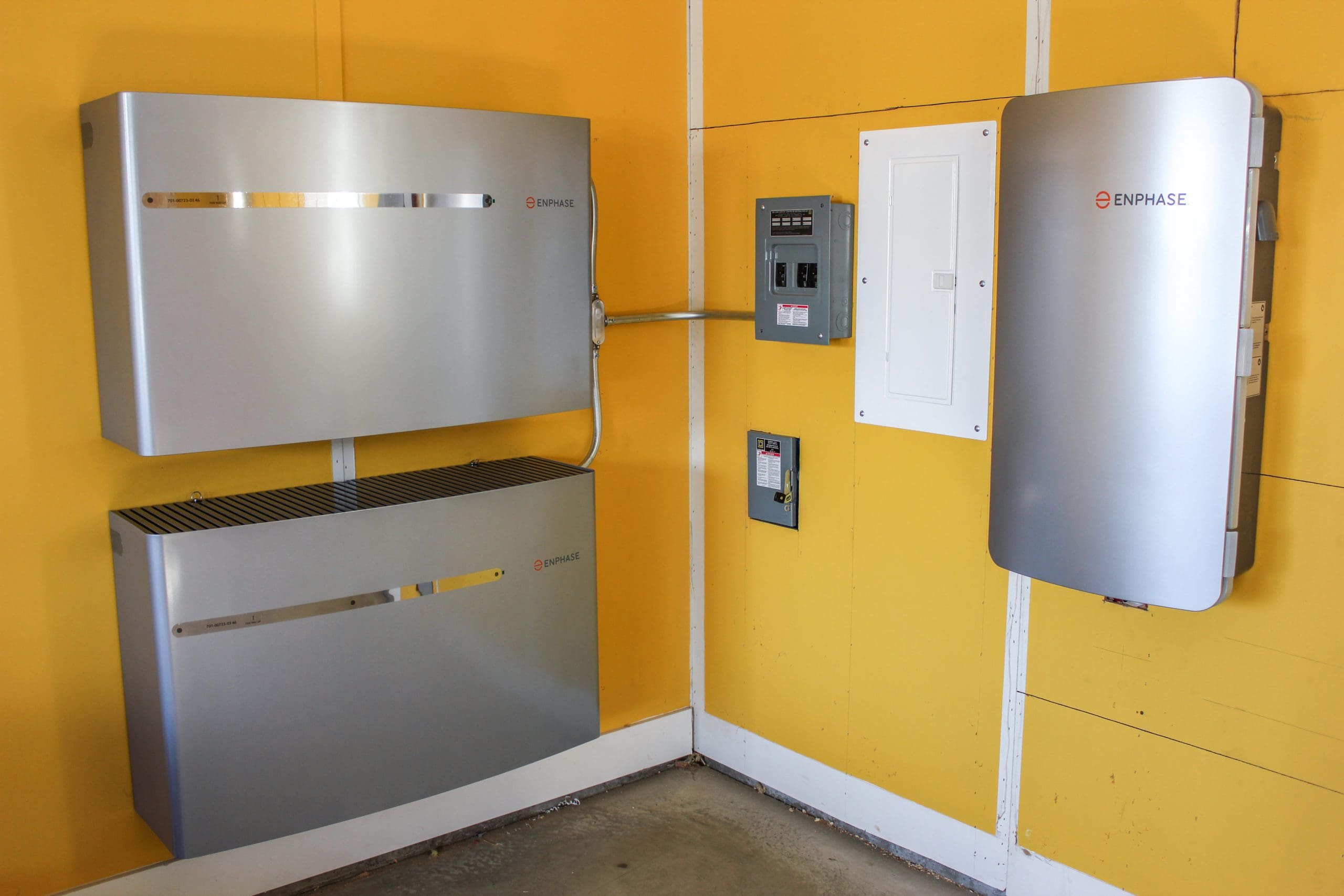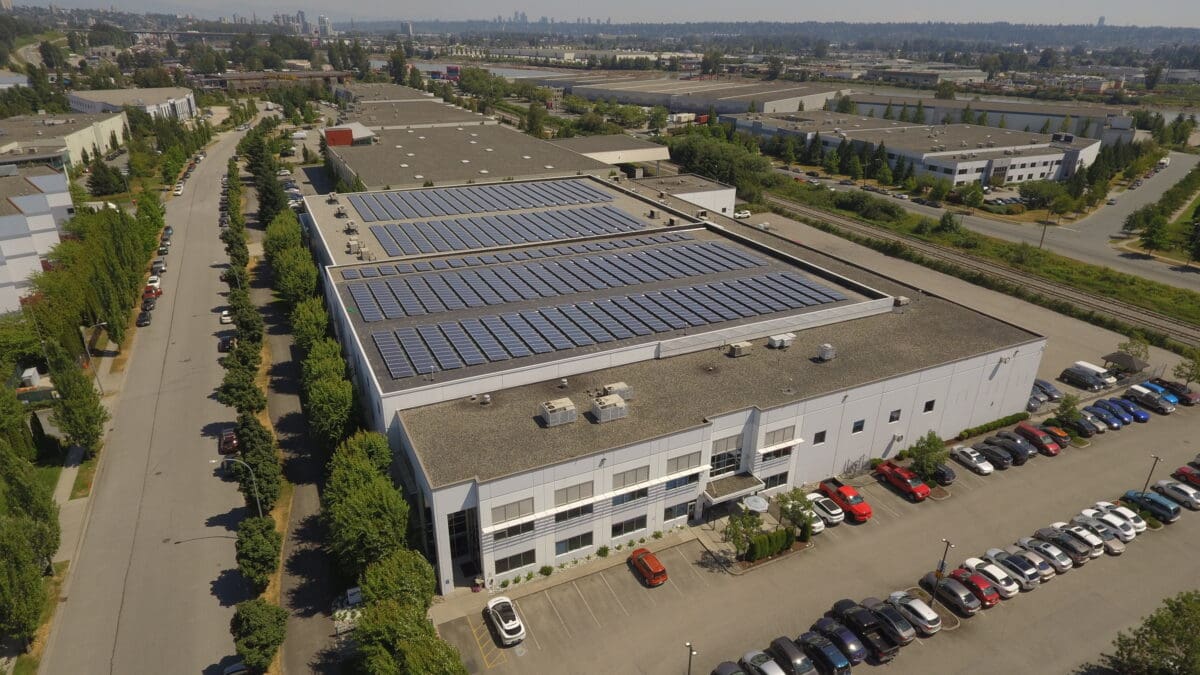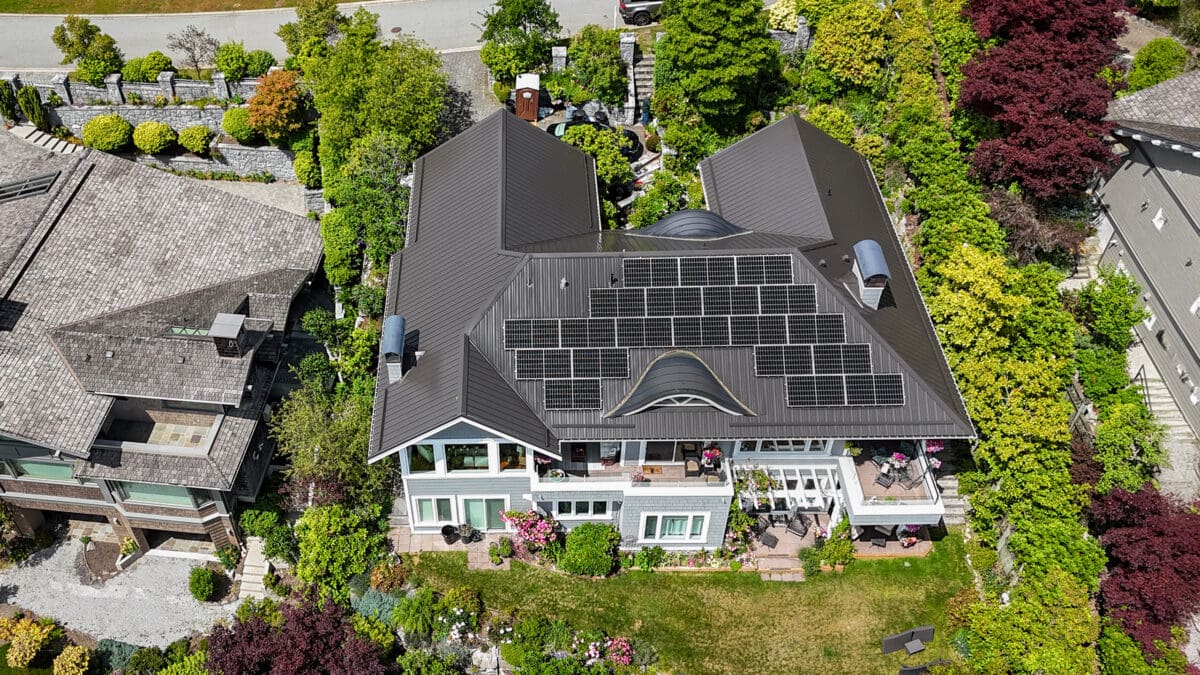“I really like the idea of always having electricity available by having backup batteries, but is it necessary?”
We frequently hear this question and wanted to shed some light on battery backup systems and when they are most effective. Bottom line, in the Lower Mainland, battery backup systems are rarely needed.

In what situations should you consider having a battery back up for your solar panels?
There are a few instances where battery backup systems work amazingly well. If you operate a business that must always be operational, whether it be for keeping computers and other operational systems online, or keeping refrigerated goods cold, a battery backup system works very well to ensure your business and goods are protected with constant electricity available.
If you live in a rural area, or possibly on an island within the Georgia Straight, not only are you potentially more susceptible to power outages, but the outages may last longer than a few hours. This could be another situation that dictates the need to have electricity stored for emergencies.
Why are Powerwalls becoming so popular?
Many people don’t realize that in many US states, electricity has premiums during high-use times of day, also known as Times Of Use rate schedules. For example, when people get home from work and turn on lights, tv’s and begin cooking with microwaves and ovens, there is an electricity demand from approximately 3pm-8pm. During these times, residential electricity rates are much higher. In areas facing these premiums, people have found a major benefit with PowerWalls or other battery backup systems because it will charge overnight or during the day when electricity rates are low, and this stored power is used in the evening preventing households from using premium-priced electricity from the grid. In BC, we don’t face TOU rates, so the need for batteries as a cost saving measure won’t have as much impact.
The recently released Greener Homes Grant offers homeowners up to $1,000 towards adding a battery backup system to their home. For the Greener Homes Grant, there is a maximum of $5,000 homeowners can claim, and a majority of our customers prefer claiming the full $5,000 for their solar panel installation. We were recently interviewed by Global BC News to contribute to their segment about the grant.
Do you need to store electricity when using the Net Metering program from BC Hydro?
Asides from some of the situations outlined above, no, you don’t need to store electricity since the grid becomes your battery with BC Hydro’s Net Metering program. How this works is that if you generate electricity during the day that isn’t used by your home, it’s sent to the grid and earns you credits. At night when your solar panels aren’t producing electricity, you will consume electricity from the grid, which is deducted from the credits you’ve saved. With the Net Metering program your credits are used on a 1:1 ratio, meaning there are no costs to use the grid as you are able to consume 100% of the electricity sent to the grid without being charged from BC Hydro.
Battery back-up systems are costly and can be a worthwhile investment when used in the proper application. Batteries for storing your electricity is not required for most residential solar panel installations. Our solar experts can show you the differences between a system with battery backup and a system without, so contact us today to see which option works best for your home with a Free Estimate!


